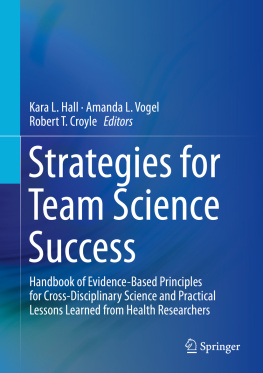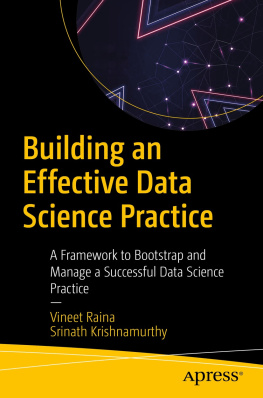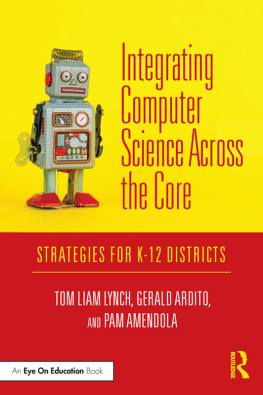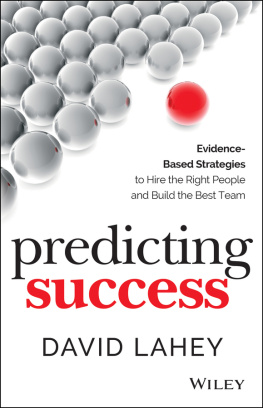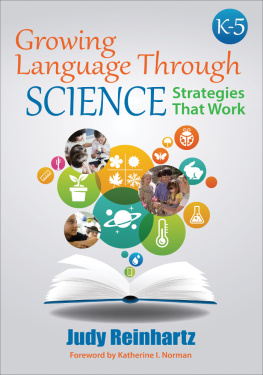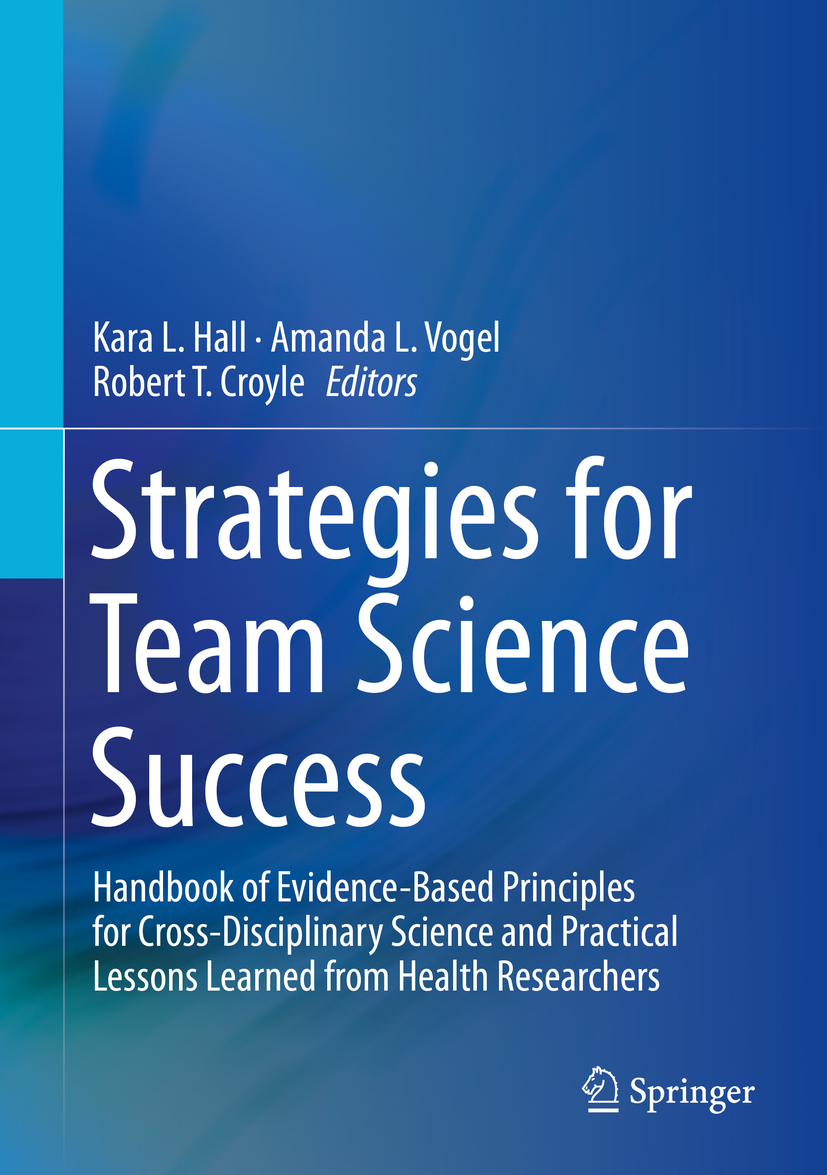Editors
Kara L. Hall
Division of Cancer Control and Population Sciences, National Cancer Institute, National Institutes of Health, Bethesda, MD, USA
Amanda L. Vogel
Clinical Monitoring Research Program Directorate, Frederick National Laboratory for Cancer Research Sponsored by the National Cancer Institute, Frederick, MD, USA
Robert T. Croyle
Division of Cancer Control and Population Sciences, National Cancer Institute, National Institutes of Health, Bethesda, MD, USA
ISBN 978-3-030-20990-2 e-ISBN 978-3-030-20992-6
https://doi.org/10.1007/978-3-030-20992-6
Springer Nature Switzerland AG 2019
This work is subject to copyright. All rights are reserved by the Publisher, whether the whole or part of the material is concerned, specifically the rights of translation, reprinting, reuse of illustrations, recitation, broadcasting, reproduction on microfilms or in any other physical way, and transmission or information storage and retrieval, electronic adaptation, computer software, or by similar or dissimilar methodology now known or hereafter developed.
The use of general descriptive names, registered names, trademarks, service marks, etc. in this publication does not imply, even in the absence of a specific statement, that such names are exempt from the relevant protective laws and regulations and therefore free for general use.
The publisher, the authors, and the editors are safe to assume that the advice and information in this book are believed to be true and accurate at the date of publication. Neither the publisher nor the authors or the editors give a warranty, express or implied, with respect to the material contained herein or for any errors or omissions that may have been made. The publisher remains neutral with regard to jurisdictional claims in published maps and institutional affiliations.
This Springer imprint is published by the registered company Springer Nature Switzerland AG
The registered company address is: Gewerbestrasse 11, 6330 Cham, Switzerland
Foreword
As a long-term social scientist and recent past director of the Institute for Social Research (ISR) at the University of Michigan, I was asked by the editors of this new book to write a foreword placing team science in the context of social and behavioral sciences research and applications. The ISR is a successful 75-year experiment in the utilization of team science principles to advance high-quality research on basic and applied behavioral and social science problems.
The need for, and implementation of, large research teams has been brought into sharp relief over the last few decades as the complexity and size of scientific problems have grown not only in the social and behavioral sciences but also in the biological and physical sciences. Significant advances in a wide variety of tools, approaches, and technologies combined with rapid growth in computing power, big data, data mining systems, imaging, and geographic information systems, has exponentially increased the need for interdisciplinary teams in order to investigate and address complex scientific questions.
ISRs use of team science did not grow strictly from conceptualization of organizational principles but instead evolved to conduct the work in basic and applied social and behavioral sciences needed to address complex human science problems in business organizations, the military, and other organizational contexts. For 75 years, the nature of problems addressed responded well to the development of interdisciplinary research teams spanning senior investigators to undergraduate students, where the nature of the problem dictated the organizational forms necessary for addressing particular problems. Over this same period, however, the larger context of universities, private and public funders, and public perceptions of science, as well as the size and scope of problems to be addressed, changed substantially. These changes are now dictating the need for more systematic investigations of the nature, context, and structure of the team science enterprise.
There is no reason to believe that science will move backward such that the lone investigator working either in a laboratory or armchair will ever again be the imagined norm for scientific investigation. Thus, the challenges of ensuring cooperation, composition of teams, proximity, scientific credit, reward systems for discoveries, rules of tenure, and promotion are all issues that have to evolve to meet the new reality of team science.
This book is an outstanding product of a massive undertaking examining the multiple facets of team science from a broad array of perspectives. It is a large volume and not meant to be read from cover to cover in one sitting. Instead, the volume is to be used as a scientific and applications sourcebook and to be consulted and employed as a resource manual. The chapters focus on topics ranging from integrative science teams, expanding engagement in science teams, team characteristics, team formation, and team functioning to institutional influences and technological support. Within each of these broad topical areas, the chapters encompass State of the Science chapters focused on providing up-to-date evidence and conclusions on what we know scientifically about the nature of effective team science, Special Topics chapters that detail and suggest new directions for scientific exploration in team science, and Practice-Oriented chapters that are rooted in lived experiences of scientists and administrators providing insights and examples of successful applications of team science approaches in developing key strategies in organizing, leading, implementing, managing, facilitating, and supporting cross-disciplinary social, behavioral, and health research teams. Each of the chapters within these three broad types discusses implications, lessons learned, and practical strategies for success in order to help guide readers who are interested in applying team science principles and practical action steps in establishing successful team science units.
Knowledge regarding evidence-based principles in the volume is drawn from and applied to team science across the scientific enterprise and research domains. NIH scientists have served as international leaders in studying as well as developing strategies for how to improve the support and conduct of team science. The book has a public health research and application orientation, and nearly half of the chapters draw from, or include, examples of research that integrates behavioral and social science with a broad range of disciplines. So although NIH scientists have utilized and applied their knowledge in the health context, the models, tools, and applications featured in this volume have been developed within and used across the sciences, humanities, and public health arenas.
The National Academies report,Enhancing the Effectiveness of Team Science, drew several conclusions addressing the need for more systematic research in the complicated nature, etiology, and context of team science. The growth in the breadth of interdisciplinary areas needed to address evolving scientific problems and questions ranging from the creation of the universe to the nature of cellular activity promoting the growth of cancerous cells portend even further complexity in the future. It is not clear that institutional support systems, policies, organizations, and individual scientists are keeping pace with the evolving needs of these science teams. This volume summarizes current scientific knowledge of effective team science approaches, areas of need for new research on science teams, and, perhaps even more importantly, examples like the ISR organization experiment that have promoted successful (as well as not so successful) team science applications over the years. There are lessons that have been learned, lessons to be learned, and compelling examples of systematic and non-systematic attempts to implement teams of scientists (both inter- and intradisciplinary) working on shared scientific problems.

